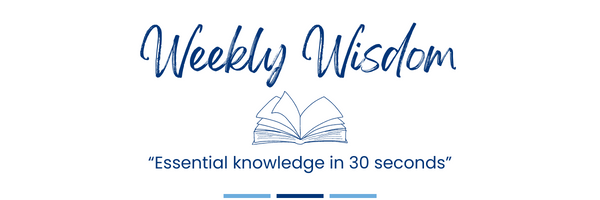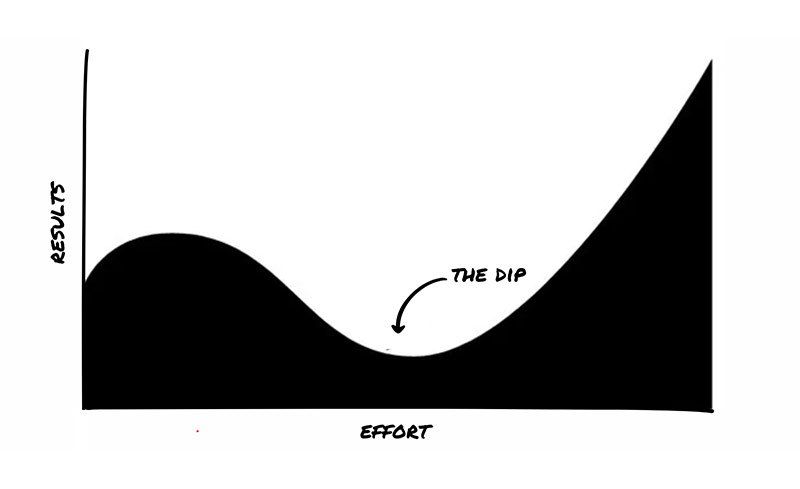
What should you know?
In his book The Dip, Seth Godin speaks of the importance of knowing which things to quit and which things to push on with when the going gets tough.
When you first start something it’s fun, you see rapid advancement and clear progress. But, after doing it for a while the marginal improvements start to become smaller and less noticeable. You can become fatigued and frustrated that you are not progressing as fast as you would like – this is ‘the dip’.

The concept of ‘the dip’ relates to many aspects of your life, from learning a language, to mastering a new skill, to investing your money.
Why should you care?
When investing for your future, you may find that you hit ‘the dip’ along the way.
This could be for many reasons, such as the first time you experience a temporary market downturn, a period of unemployment, or seeing your savings rate cut due to increased living costs.
You could feel frustrated and question whether you should quit and try something else. Maybe there is a quicker way to get to where you want to go? There isn’t.
If something is worth doing, and investing for a more comfortable future absolutely is, then it’s essential to push on through the dip.
The fact it can be difficult is exactly why the rewards are so great for those who persist, when others quit.
Seth Godin says “The dip is the long slog between starting and mastery”. Don’t let your impatience get the better of you, keep plugging away, stick to the plan and you will reap the rewards.
While the fundamental principles for successfully managing your money are simple, the practicalities can be much more complex and nuanced. Even something as simple as choosing the wrong type of account can have significant unanticipated consequences.






